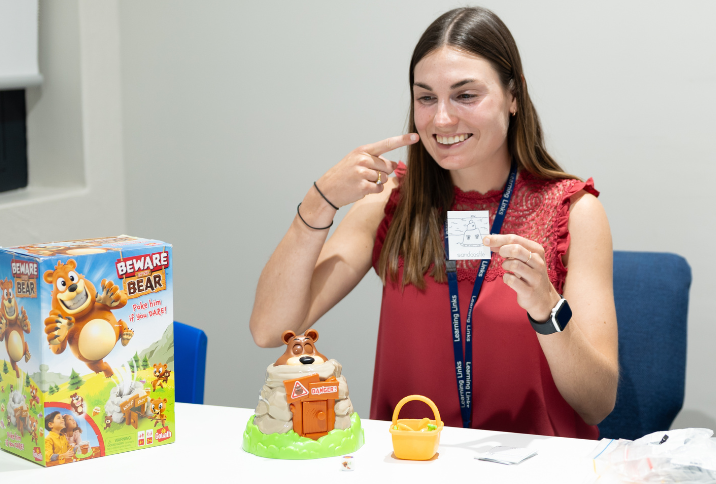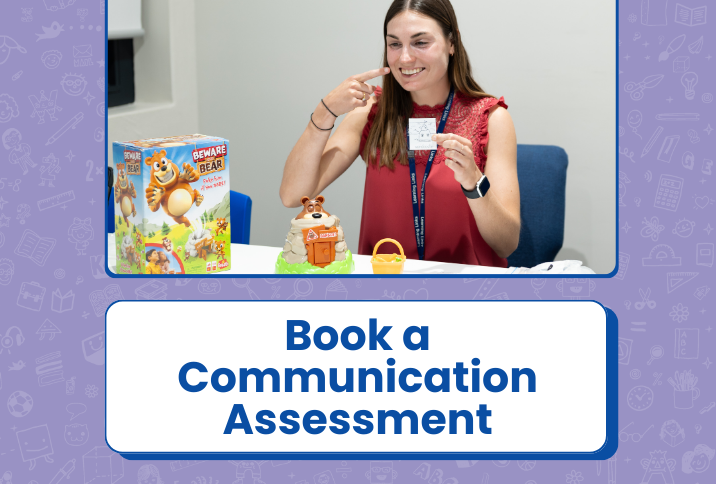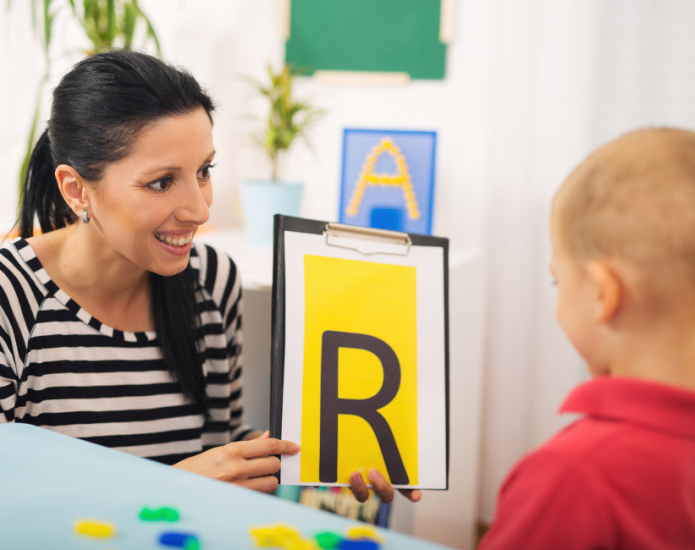What is a Communication Assessment?
A communication assessment is a comprehensive evaluation performed by a speech pathologist to investigate concerns with your child’s communication development (speech, language and fluency), often before commencing speech therapy.
Speech pathologists observe your child completing a range of activities to evaluate their skills in the following areas:
- Speech sounds (pronouncing sounds clearly)
- Understanding and listening
- Using words, sentences and gestures to express ideas
- Fluency and stuttering
- Voice quality such as pitch and tone
- Literacy
- Social communication and play
- Use of alternative and augmentative communication (AAC) such as visuals and text-to-speech technology
When is a Communication Assessment Recommended for a Child?
Children develop communication skills at different rates in their early years. It’s normal for them to make mistakes as they learn, but if challenges continue over time, it’s a good idea to seek support from a speech pathologist.
Your child’s GP, paediatrician, teacher or another professional may suggest a communication assessment if your child is having ongoing difficulties. A speech pathologist can identify the specific areas where your child may need help. Signs that an assessment might be helpful include:
- Late talking or not talking at all
- Difficulty understanding what others say
- Trouble saying words clearly, making it hard for others to understand
- Difficulty answering simple questions or following simple instructions
- Difficulty retelling a story
- Stuttering on sounds, syllables, words or phrases
Benefits of a Communication Assessment
If your child is starting speech therapy, a communication assessment is the first step. It helps identify your child’s current skills and guides future support. It may also form part of a diagnostic process.
Key benefits of a communication assessment include:
- Understanding the reasons behind your child’s communication difficulties
- Creating a tailored therapy plan to support your child’s goals
- Supporting diagnosis of conditions like Autism or Dyslexia
- Identifying learning adjustments in early childhood or school settings
- Recommending assistive technologies such as text-to-speech or AAC apps
- Supporting access to literacy and language intervention
- Helping families apply for funding such as NDIS or Medicare rebates
The Assessment Process
A communication assessment includes several components and activities to ensure a thorough evaluation of your child’s current abilities. At Learning Links, our assessments may include:
- Developmental history which may include questions about your child’s birth, when they started walking and talking and if any other family members have had difficulty with communication
- Parent interview to understand your child’s development and interests
- Play-based activities to observe how your child plays and interacts with others
- Functional activities to look at your child’s communication skills in everyday tasks
- Standardised assessments to evaluate your child’s speech and language skills compared to others their age
Understanding Assessment Results
Following the assessment, the speech pathologist will provide a comprehensive written report. This outlines the areas where your child is progressing well, where they may need extra support, and tailored recommendations to suit their specific needs. You’ll also have the opportunity to schedule a phone consultation to discuss the results and next steps.
The report will describe your child’s performance across areas such as receptive language, expressive language, speech sounds, fluency, voice and oral structure.
At the end of the report, the speech pathologist will include a summary of findings and any referrals. These may include statements like ‘demonstrates age-appropriate language skills’ or diagnostic terms such as ‘speech sound disorder’ or ‘language difficulties’.
Whether a diagnosis is made or not, the report may include recommendations for:
- Ongoing speech therapy
- Further assessments (e.g. with a psychologist or occupational therapist)
- Additional learning support at school
Assessment Tools Used by Learning Links
Learning Links’ speech pathologists use a range of standardised tools to assess your child’s speech, language and communication skills:
- Preschool Language Scales (PLS-5): Assesses early play, language, literacy, and pre-verbal communication for children from birth to 7 years.
- CELF-P3: Evaluates the language skills needed for classroom success in children aged 3 to 6 years.
- CELF-5: Assesses a wide range of language and literacy skills in children aged 5 to 21 years.
- Receptive-Expressive Emergent Language (REEL): A parent interview tool used to assess communication in very young children.
Take the Next Step: Book a Communication Assessment
If you’re concerned about your child’s speech or language development, a communication assessment can help you understand what support they need. Contact us today to book an assessment and take the first step in supporting your child’s communication journey.





